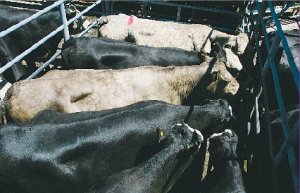"We've got some decisions to make about where we go from here," committee member Andrew Weir told Rural News.
Nationwide roadshows for veterinarians last year launched a BVD management toolkit and attracted 360 vets. The roadshows were successful and the committee is now at an "in between stage", calculating costs of various control programmes, Weir says.
"Once we have an idea of that we will be in a much stronger position to start pushing BVD control if that's appropriate."
Throughout the country BVD-infected regions vary: Taranaki and the West Coast have little infection; Northland and Canterbury have the highest incidence.
"Even in the low-incident regions I suspect we will find it's worthwhile taking action, possibly even more worthwhile in some cases because if you have a herd that has no immunity then the consequences of an outbreak are dramatic. They haven't built up any resistance and it can have adverse effects upon a large proportion of the herd, so vaccinating is important."
Weirs says it's unfortunate one of the two vaccines on the market was recalled last year out of fear it caused bovine neonatal pancytopenia (BNP). "I don't think they have yet completely nailed down the cause."
Losses due to the disease are significant in dairy and beef; some estimate 60% of animals are infected, Weir says. Besides symptoms of diarrhoea, increased mastitis, lameness and poor conception, the infection suppresses animal's entire immune system.
Many countries are now implementing national eradication programmes. Scandinavia as a region is already BVD-free and Switzerland and Austria are well on their way to a similar result.
"All [New Zealand] has now is 'ad hoc'," says Weir. "It is up to individuals to do what they want to do and if it remains like that then obviously we won't eradicate BVD.
"If New Zealand did decide to work towards eradication it could still be voluntary for most of the way but at some stage there would need to be significant buy-in from the industry as a whole to make sure there weren't reservoirs remaining. That's a long way down the track."
Meanwhile Weir advises farmers concerned about BVD to talk to their vets and find out what they can do.

















